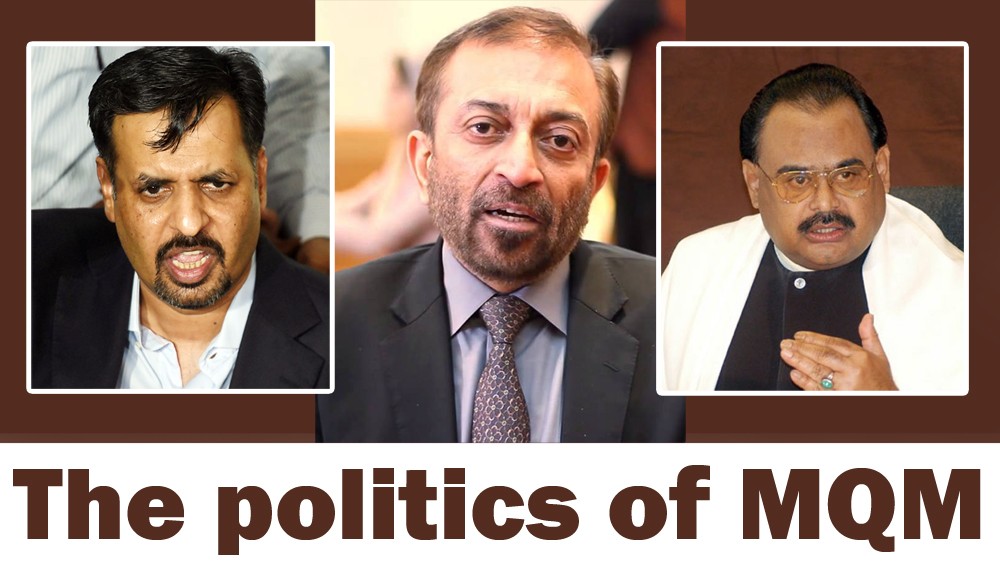
Focusing on the future of the MQM and how will it affect politics in Karachi and beyond

These are indeed strange times for the MQM, the party whose perceived street power as well as power of the muscle was on a steady decline for the last couple of years. The pressure was mounted, especially after the Rangers-led operation that started in 2013, following which many of the party workers went missing.
That was what the hunger strike outside the Karachi Press Club was all about. Yet, the party head, Altaf Hussain, deemed it fit to utter the provocative remarks against the country, urging the party workers to wage an attack on the media houses.
If this was an error of judgement, it defied common sense: a man who had already been barred from speaking live on independent channels and whose ability to shut the city on one call from London was seriously compromised for some time decided to say all that he did.
But that’s not where the element of surprise ends. The swiftness with which the second-in-command, Dr Farooq Sattar, disowned the all-powerful party leader and cut all ties with London has equally come as a shock. In an interview with TNS for our Special Report today, Dr Sattar, the party’s new leader minces no words when he says, "Now it has become impossible for us to take advice and policies from London…Even we amended party’s constitution to remove [Altaf] Hussain’s name as party head… There is now a complete disconnect with Hussain. We have no links with him. It should be clear to all now."
Read also: The politics of MQM
Initially, the analysts saw it all as a set-up -- Dr Sattar had announced the disconnect after having sought permission from London. But his tone is hardened now. And he seems to be addressing many sets of people at the same time -- from the party’s loyal constituents to the media to the authorities who have not yet relented the pressure.
Altaf Hussain, indeed, may be on the way out. In all this, a new party seems to be in the making. But some fear it may be forced out of existence. Nobody knows for sure what lies in store for the MQM whose political fortunes are still intact and it may rediscover its democratic moorings. But the faction that the Altaf Hussain’s August 22 speech rendered irrelevant quite conclusively is the one that came to be known as the Pak Sarzameen Party. Its entire politics was anti-Altaf Hussain and, now that the main party has distanced itself from the leader, the PSP has no reason left to exist.
Meanwhile, all saner elements caution against pushing the party to the wall. It should be allowed to do politics as should all other parties. Where does the MQM stand today is what this Special Report is about.